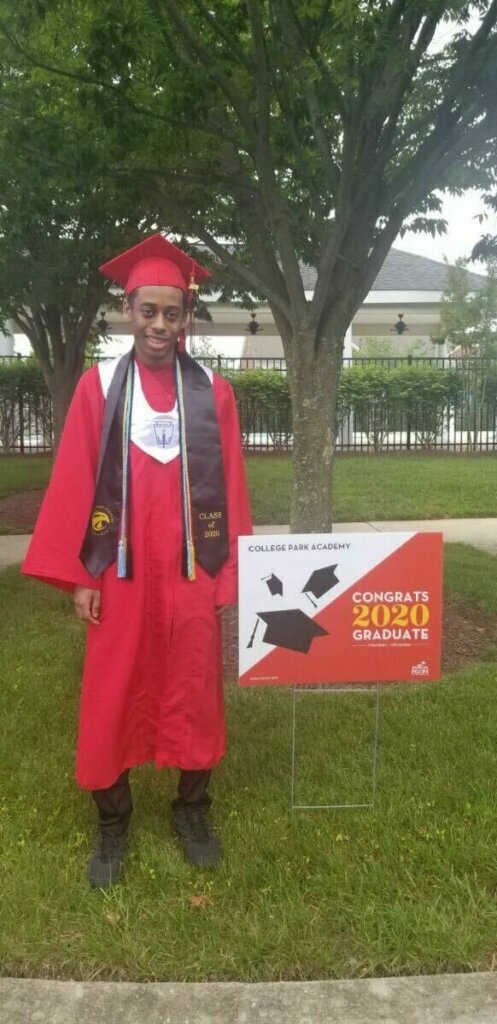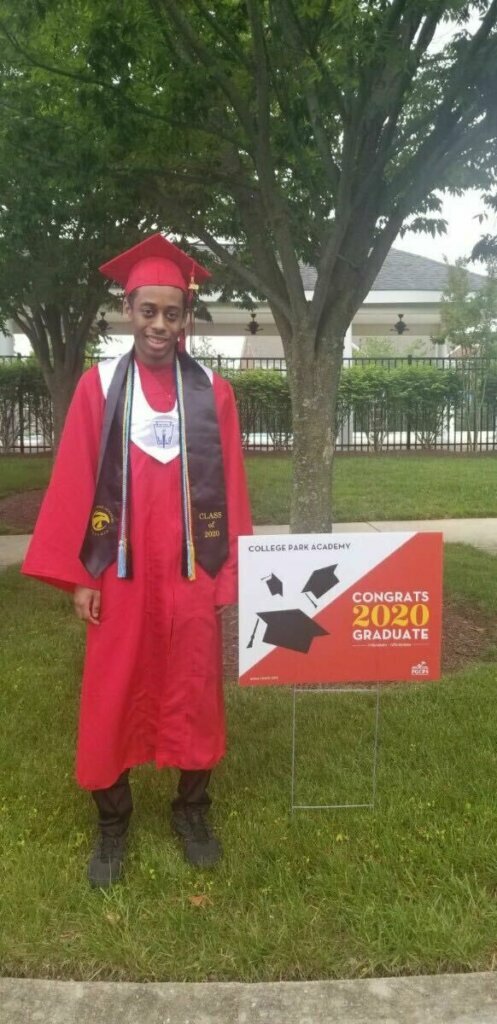
At College Park Academy in Prince George’s County, Maryland, online learning was in place long before the coronavirus pandemic sent kids home for the rest of the school year.
The charter school enrolls students via a lottery from grades 6-12 features an online curriculum.
One-third of the classes are completely online, and the rest are taught in person, but based on an online curriculum. As the county imposed stay-at-home during the school year, teachers and students at CPA, as the school is known, were veterans when it came to virtual instruction.
With a number of school systems going with a virtual-only model for the entire first semester in the coming year, WTOP asked a teacher and a student from College Park Academy if they had tips or thoughts on how to avoid some of the issues that can crop up in the virtual model.
Advice from a teacher
Zachary Francis said for some students the virtual learning model is ideal.
“I think that the virtual model is so, so good for self-motivated students who really want to take charge of their own education,” Francis said.
He teaches high school social studies, including advanced placement world history and psychology,
He said it can allow students to accelerate their coursework “and get more classes under their belt before they leave for college.”
Francis said his students were well-equipped to deal with online learning thanks to their experience with the technology and the school’s normal routine.
But for some students, there were big challenges — but not from technology.
Having to learn online from home was a very different experience.
“The ones that were really having trouble with distance learning were the ones who had five or six other kids living in their household,” Francis said.
For others, whose parents are essential workers, there were the added tasks of pitching in at home.
“So they had to babysit their younger siblings, or they had to get dinner ready, or they had to get lunch ready” for themselves or for the entire family,” Francis said.
Francis urges his fellow teachers to avoid letting the pressures of working through technology and the magnitude of the task of managing all their students online rattle them.
“Take a deep breath,” he said.
- Sign up for WTOP alerts
- Latest coronavirus test results in DC, Maryland and Virginia
- Coronavirus FAQ: What you need to know
- Coronavirus resources: Get and give help in DC, Maryland and Virginia
- Fall school plans for DC, Maryland, Virginia systems during coronavirus
- Howard University moves to online undergraduate classes for fall
- Last-ditch virus aid talks collapse; no help for jobless now
- Loudoun County OKs online learning plan for new school year
Looking for more information? D.C., Maryland and Virginia are each releasing more data every day. Visit their official sites here: Virginia | Maryland | D.C.
And leaning on his background in teaching world history, Francis added, “Nobody remembers how schools were during the Black (Death) in medieval Europe or during the Spanish flu 100 years ago,” he said. “This is going to be hectic, and you’re doing the best you can.”
He also warns educators against the urge that many teachers have to overload themselves — and their students — with too many online resources.
“Just try to get comfortable with one or two, and really dive in,” Francis said.
There are several great online materials for teachers, Francis said, and it can be overwhelming when too many elements come into the mix. He suggests teachers lean on the materials provided by the school district, with perhaps some supplemental materials. But when it comes down to it, “Use just what you can to get the information across,” Francis said.
For parents, Francis has nothing but thanks. “I appreciate all your support and making sure your kids are getting their work done at home.” And he reminds parents, “We’re all in this together.”
Francis said students are perhaps better equipped to manage the job of learning online than their parents, but that they may struggle with some of the social and emotional impact of isolation.
From a student perspective
Kalonji Harrington, 18, is a College Park Academy graduate. He said students should take advantage of their command of social media to keep in close touch with friends.
Harrington, who’s wrapping up an internship at the NASA Goddard Space Flight Center and is headed to the University of Maryland at College Park, said students shouldn’t hesitate to speak up when they’re struggling and let their teachers and parents know.

“Teachers are here to help you, and you’re not alone” in trying to navigate a brand-new and difficult situation.
Harrington has attended CPS since the sixth grade. Despite with his own experience with online learning, he did find times when maintaining focus and developing time-management skills could be tough.
But Harrington reminds students that they don’t have to figure out those things all by themselves.
“Your parents and teachers have been through a lot of challenges before and have learned a lot of these skills already,” Harrington said. “They can help you and are here to support you.”
He would advise teachers to provide lots of opportunities for students to speak up and hold discussions during their online sessions, “rather than keeping things as lectures.”
Both Francis and Harrington said that part of the stress of living through a pandemic is that it has put society in a new and untested situation.
But both said part of the comfort to be found is that everyone is working their way through it as best they can.
“Everyone needs to be less harsh with each other,” Harrington said, adding that people need to work together. “So that everyone can be the best that they can be at this time.”
Maryland’s State Department of Education requires all school systems to post their plans for the coming school year by Aug. 14, and many, including Montgomery, Anne Arundel, Frederick and Prince George’s counties, will be holding virtual classes for the first semester.
This post was originally published on this site


